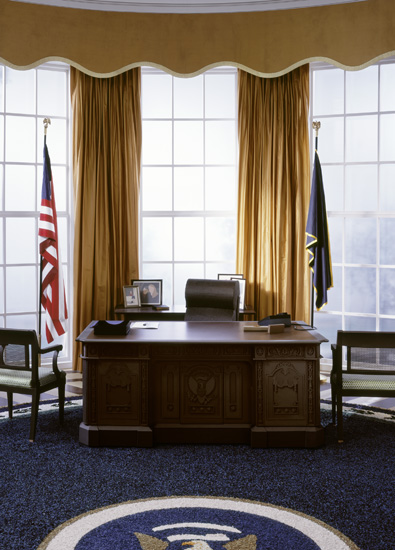
As I engaged with Parshat Korach this time around, I found myself asking an interesting question: If I were there, which side would I have been on?
With the benefits of Torah and hindsight, it is clear that Moses’ was the winning side of the argument. Moses did more than actually prevail, God had Korach and his followers swallowed by the earth. But up until the final moment, Korach was making a persuasive argument about the appropriate leaders of B’nai Israel. Would I have been swayed?
Korach makes a compelling case. He charges that Moses and Aaron have usurped power that rightfully does not belong to them. Now that the Hebrews are free, they should have right leaders, the Levites for the priestly matters and the descendants of Reuven as the true political leaders of the people. We believe that Korach had ulterior motives and saw the opportunity for personal power, but he made a cogent argument, on the surface at least, and many people were likely swayed. As uncomfortable as it might appear, initially there were likely good people on both sides. But just because an argument sounds good on the surface, does not mean it is acceptable without first digging deeper.
The return of leadership to Reuven is in keeping with the concept of primogeniture. And the return of the Levites is consistent with their status as the priestly class. But even before God stepped in placing Moses and Aaron as the leaders, we have seen primogeniture is not automatic and leadership is based on character and deeds before anointing takes place. Before anyone could ultimately align with Korach, a deeper understanding of Korach’s motives and the relationship to the Divine had to be probed. It was not enough that Korach was persuasive. It was not enough that Korach’s agenda aligned with our own. We are also obligated to think in terms larger than our own self-interest. In other words, we are responsible for determining what is right for ourselves and for the greater good and taking a stand toward making that possible.
The people were fearful. Moses ascended the mountain and the anxiety of a slave people feeling abandoned when he did not return was overwhelming. The mob mentality took over and Korach exploited that. Unfortunately, the people went astray. But that could not absolve them of the responsibility to return to rationality and make thoughtful correct choices. I too might have been swept up in the initial emotions in the moment, but then it would be incumbent on me to soberly reflect on whether I was indeed pursuing the right course. This is the burden of freedom.
But there is more to this story, and it gets even more interesting. There is actually a third side to the situation. What about the people who did not take sides? Usually, in arguments, there are the traditional two camps, but there is also a third group. This group remains uncommitted to either side, preferring instead to wait on the sidelines to see who actually wins. And then they throw in with the winning side, never losing and also never risking. These people are more insidious than the losing or wrong side Doing nothing is feckless at best, or likely even more conniving than Korach himself. Nechama Leibowitz’s commentary on Korach references our Sages condemning this kind of opportunistic behavior (Korach 3, Studies in BaMidbar).
Driven not by a belief in something but instead a desire to be on the winning side, to survive and thrive without ever risking anything. These people are more than rootless, they are not to be counted upon for loyalty or sacrifice for a greater good. These opportunists undermine any cause that requires a measure of devotion, as they are devoted only to themselves. They would be the voices that would undermine the report of the spies, they might be among the spies themselves, not appreciating the opportunity offered by Joshua and Caleb, only seeing the personal risk involved. In many ways, this group is the more dangerous one. Focused only on themselves, they fight for nothing. Sometimes it is apathy, sometimes it is selfishness, but it always keeps us from moving forward towards what could be, mired instead in the safety of being nameless in the crowd. Hoping to land on their feet, they are little more than mercenaries, fair weather friends who ultimately cannot be trusted to do anything other than enjoy the fruits of someone else’s labors.
At the end of the day, there was only one side-to align with Moses in service to the Divine. Today these issues confront us in sometimes subtle but often blatant ways. Determining who we are as a people and nation require taking an active and bold stand, championing our values, speaking truth to power and speaking truth to those desirous of power.
Which side are you on?
Rabbi David Levin is a second career rabbi. Trained at Hebrew Union College-Jewish Institute of Religion, Rabbi Levin’s rabbinate focuses on outreach to seekers of meaning, bringing Jewish Wisdom to their life journey. Rabbi Levin’s work is trans-denominational, embracing and drawing knowledge from all aspects of Judaism. He is a member of the CCAR (Reform Rabbinical Association), OHALA (Renewal Rabbinical Association), NAJC (Neshama, Association of Jewish Chaplains), a Fellow of Rabbis Without Borders, serves on the regional board of NIF (New Israel Fund), and is a volunteer on the Disaster Spiritual Care Team of the American Red Cross.
Rabbi Levin currently teaches subjects including Ethical Wills Re-imagined, Mussar at the Jack M. Barrack Hebrew Academy, Introduction to Judaism for the URJ, “Kavod v’Nichum, Understanding Jewish end-of-life rituals”, and the acclaimed series “L’Chaim, Jewish Wisdom for the End of Life Journey” with two esteemed rabbinic colleagues. Rabbi Levin officiates in complex lifecycle events including non-traditional burial and works with interfaith couples. Rabbi David leads interfaith trips to Israel through the CLAL Stand and See project. Rabbi Levin is the organizer of Death Café of Greater Philadelphia
Rabbi Levin is a teacher and speaker appearing nationally and is available to be with your congregation.








